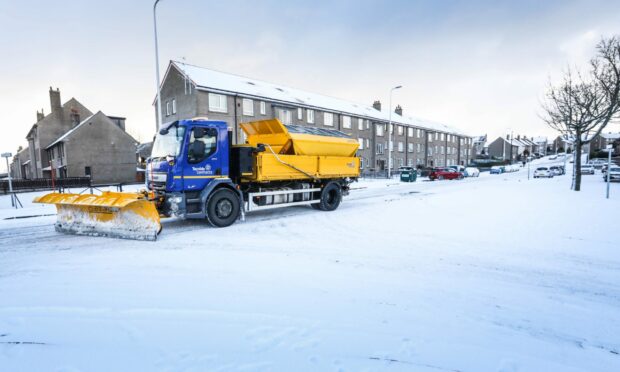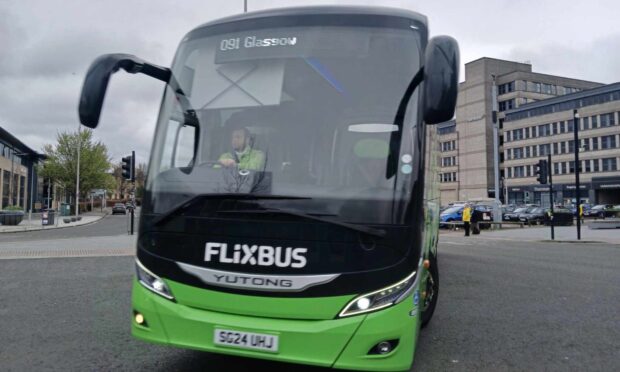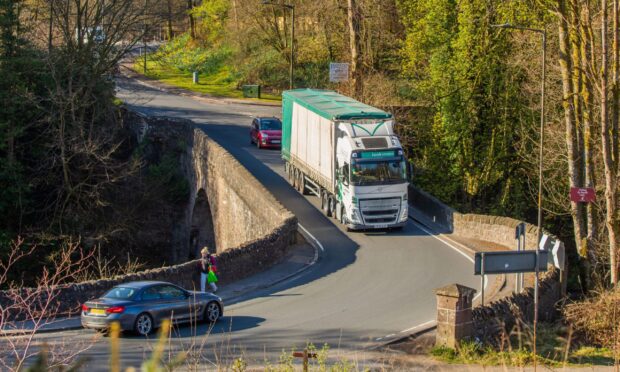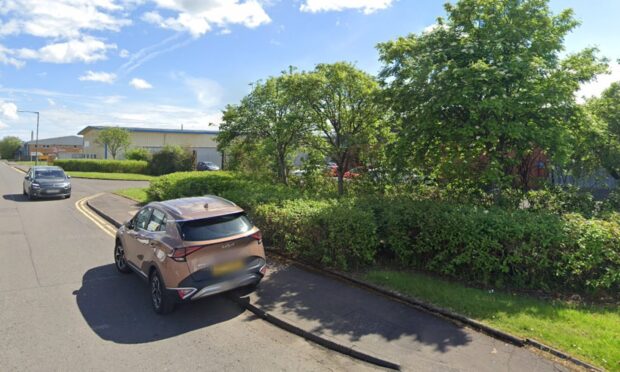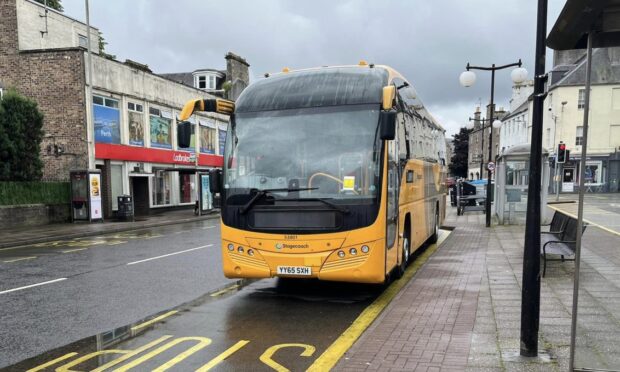Transport bosses have fewer HGV drivers to call upon this winter as they deliver plans to grit roads in Tayside and Fife during a third wave of Covid-19.
Road safety experts have highlighted the dangers of untreated roads as hard-pressed local teams work to ensure sufficient staff are in place to ensure a proper service.
But the total number of drivers available with an HGV licence has fallen this year amid a national shortage of drivers.
Only 10 drivers need to call in sick or have to isolate in Fife before the number of volunteers falls below the number required.
And bosses organising rotas in Perth and Kinross, Angus and Dundee have also highlighted the pandemic’s threat to their work.
Why is fewer HGV gritter drivers in Tayside and Fife a problem?
Simon Williams is the road safety spokesman at the RAC.
He said: “Not being able to grit roads when temperatures drop would be a real safety hazard.
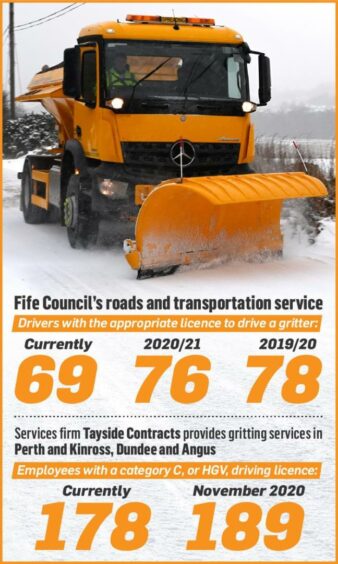
“It could lead to more crashes and, ultimately, more lives being ruined and lost.
“Local authorities must keep a grip on gritter driver numbers so drivers don’t lose grip on the roads this winter.”
He said many local authorities had already reduced the number of miles being treated with salt compared to previous winters.
“So any further reductions would be a blow to drivers who rely on their vehicles. We hope this doesn’t become the case in Fife and Tayside.”
Concern has grown around the number of HGV-qualified drivers available to complete road treatment work since shortages contributed to a run on fuel in October.
Local authorities in Tayside and Fife believe they have sufficient driver numbers in place to treat roads to the same standard as in previous years.
But falling numbers of HGV licence holders have left the service less resilient ahead of a third wave of Covid-19.
How resilient are local gritting services?
Documents obtained after a Freedom of Information request provide further detail on the capacity within roads teams.
Fife Council’s roads and transportation service currently has 69 drivers with the appropriate licence to drive a gritter.
That figure has reduced from 76 in 2020/21 and 78 in 2019/20.
Fife Council has 72 volunteers for its winter rota. That’s including volunteer staff from other departments.
The bare minimum the authority needs to deliver a gritting service and ensure adequate rest breaks for staff is 63 drivers.
Services firm Tayside Contracts provides gritting services in Perth and Kinross, Dundee and Angus.
The company currently has 178 employees with a category C, or HGV, driving licence.
Last November, the company had 189 drivers with the same licence.
The company believes it needs at least 126 drivers to fulfil its obligations.
The bare minimum number of employees required to provide the same level of service as last year is 38 in Angus.
In Dundee, the company needs 50 drivers while in Perth and Kinross the total is 38.
Are service providers aware of the gritter challenge in Tayside and Fife?
A Tayside Contracts spokesperson said the company has “ensured the resources required” are in place to meet its commitments
She said: “We are not immune to the effects of the ongoing Covid-19 pandemic. This presents a challenge day to day, week to week, similar to all services local authorities provide.
“Through close monitoring of driver’s availability, rota requirements, driver hours and gritting needs and with the co-operation and flexibility of the drivers and council partners we are continuing to cover the service needs.”
Angus and Perth and Kinross Council spokespeople acknowledged the national challenges around HGV drivers.
However, both said their resources for winter were planned and in place.
Bill Liddle is the service manager at Fife Council.
He said: “We will be expanding our driver pool by including drivers from other parts of the council.
“This will help us provide our winter gritting service, and we will be closely monitoring the number of drivers we have available.”
